 Biofuel development and marketing is getting a boost. Energy crop company Ceres, Inc. and the Texas Agricultural Experiment Station of The Texas A&M University System are collaborating in high biomass sorghum production for biofuels, through an exclusive, multi-year joint research and commercialization agreement.
Biofuel development and marketing is getting a boost. Energy crop company Ceres, Inc. and the Texas Agricultural Experiment Station of The Texas A&M University System are collaborating in high biomass sorghum production for biofuels, through an exclusive, multi-year joint research and commercialization agreement.
These plants are not designed to produce grain, but rather vast amounts of biomass — the raw material for a new generation of biofuels made from stems, stalks and leaves.
Today, sorghum-to-ethanol production uses the grain, like corn, but the plants themselves hold the greatest potential for biofuel production, says Peter Mascia, Ceres Vice President of Product Development. He notes that new technologies are making it possible to utilize the carbohydrates that comprise plant cell walls, called cellulose.
 “As these technologies mature, farmers will transition from growing as much grain per acre to producing as much biomass as they can per acre, with as little energy and agronomic inputs as possible. This means new crops and specialized hybrids like these high-biomass sorghum types will be needed,” Mascia said.
“As these technologies mature, farmers will transition from growing as much grain per acre to producing as much biomass as they can per acre, with as little energy and agronomic inputs as possible. This means new crops and specialized hybrids like these high-biomass sorghum types will be needed,” Mascia said.
As part of this agreement, Ceres will obtain exclusive commercialization rights to TAES’s high biomass sorghum hybrids developed in the joint research program. The TAES program will receive royalties as well as financial and technology support from Ceres. Other aspects of the collaboration were not disclosed.
Read More

 Inviting the media in to learn more about your business or organization is becoming more popular these days. This past week I had the opportunity to attend a media day at the
Inviting the media in to learn more about your business or organization is becoming more popular these days. This past week I had the opportunity to attend a media day at the 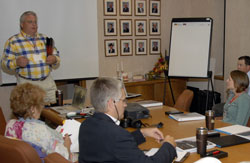 In this week’s program I’ve got an interview with Dave that we did before I left the excellent concluding lunch session we had. Dave says the feedback he received was very positive and that he plans to do it again next year. I lobbied for a weekly media day or lunch but I don’t think that’s in the budget. He says we’re going to be seeing and hearing a lot more from the AHA in coming months.
In this week’s program I’ve got an interview with Dave that we did before I left the excellent concluding lunch session we had. Dave says the feedback he received was very positive and that he plans to do it again next year. I lobbied for a weekly media day or lunch but I don’t think that’s in the budget. He says we’re going to be seeing and hearing a lot more from the AHA in coming months.
 The
The 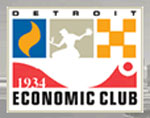 The Chairman and CEO of
The Chairman and CEO of  ConocoPhillips is the third-largest integrated energy company in the United States, based on market capitalization, oil and gas proved reserves and production; and the second-largest refiner in the United States.
ConocoPhillips is the third-largest integrated energy company in the United States, based on market capitalization, oil and gas proved reserves and production; and the second-largest refiner in the United States. 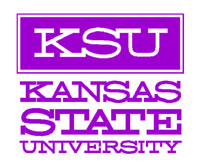 Software enabling cattle producers to safeguard the health of their herds will soon be online. Researchers at
Software enabling cattle producers to safeguard the health of their herds will soon be online. Researchers at 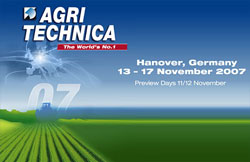 Agritechnica organizer Deutsche Landwirtschafts-Gesellschaft – German Agri-cultural Society has awarded 7 Gold Medals and 33 Silver Medals for
Agritechnica organizer Deutsche Landwirtschafts-Gesellschaft – German Agri-cultural Society has awarded 7 Gold Medals and 33 Silver Medals for 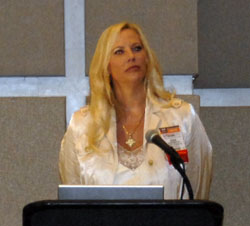 I’m not here to create a lot of content but hey, it’s what I do. So I made a point of meeting the founder and CEO of
I’m not here to create a lot of content but hey, it’s what I do. So I made a point of meeting the founder and CEO of  The
The  The FAO is just concluding
The FAO is just concluding